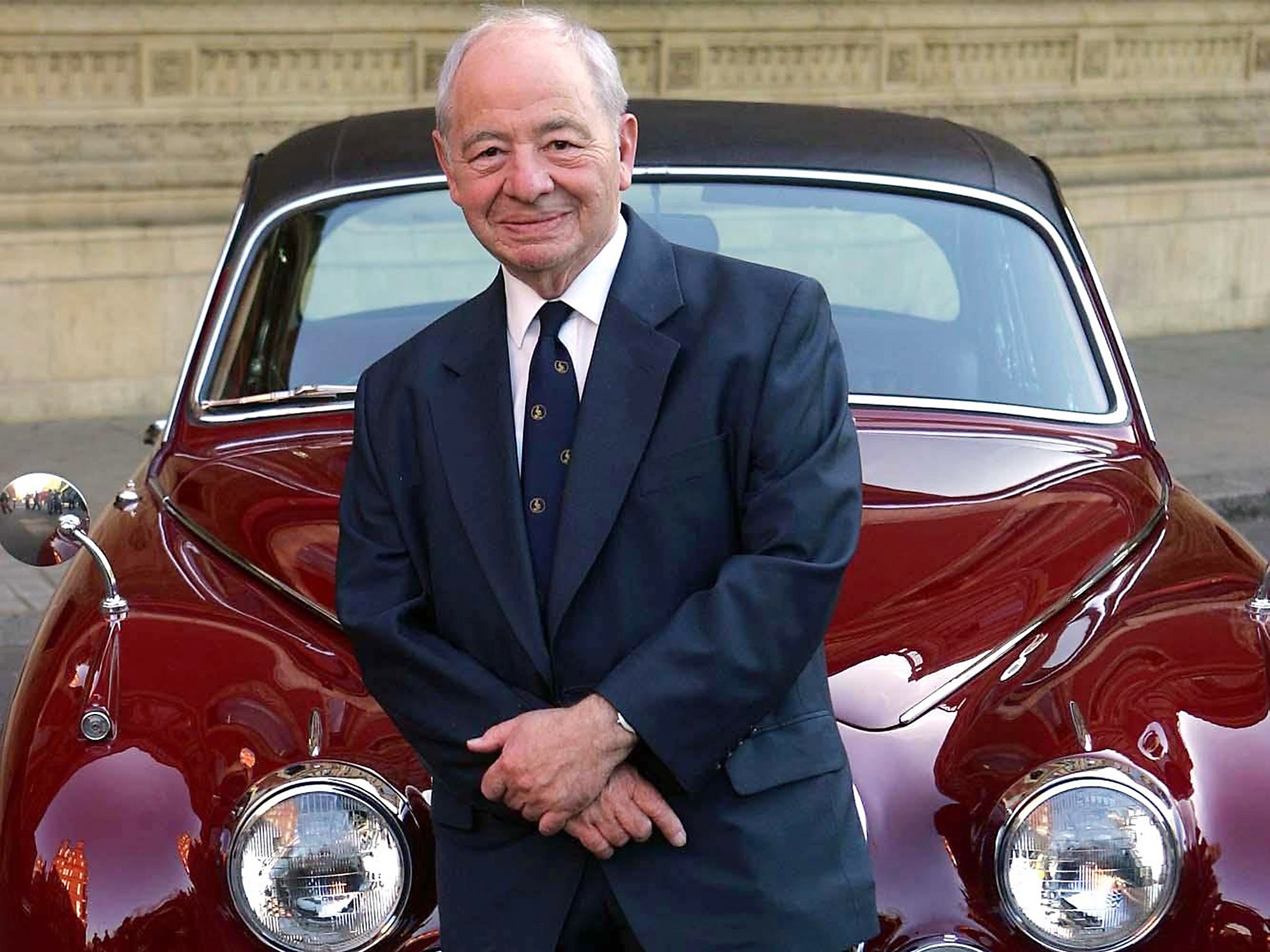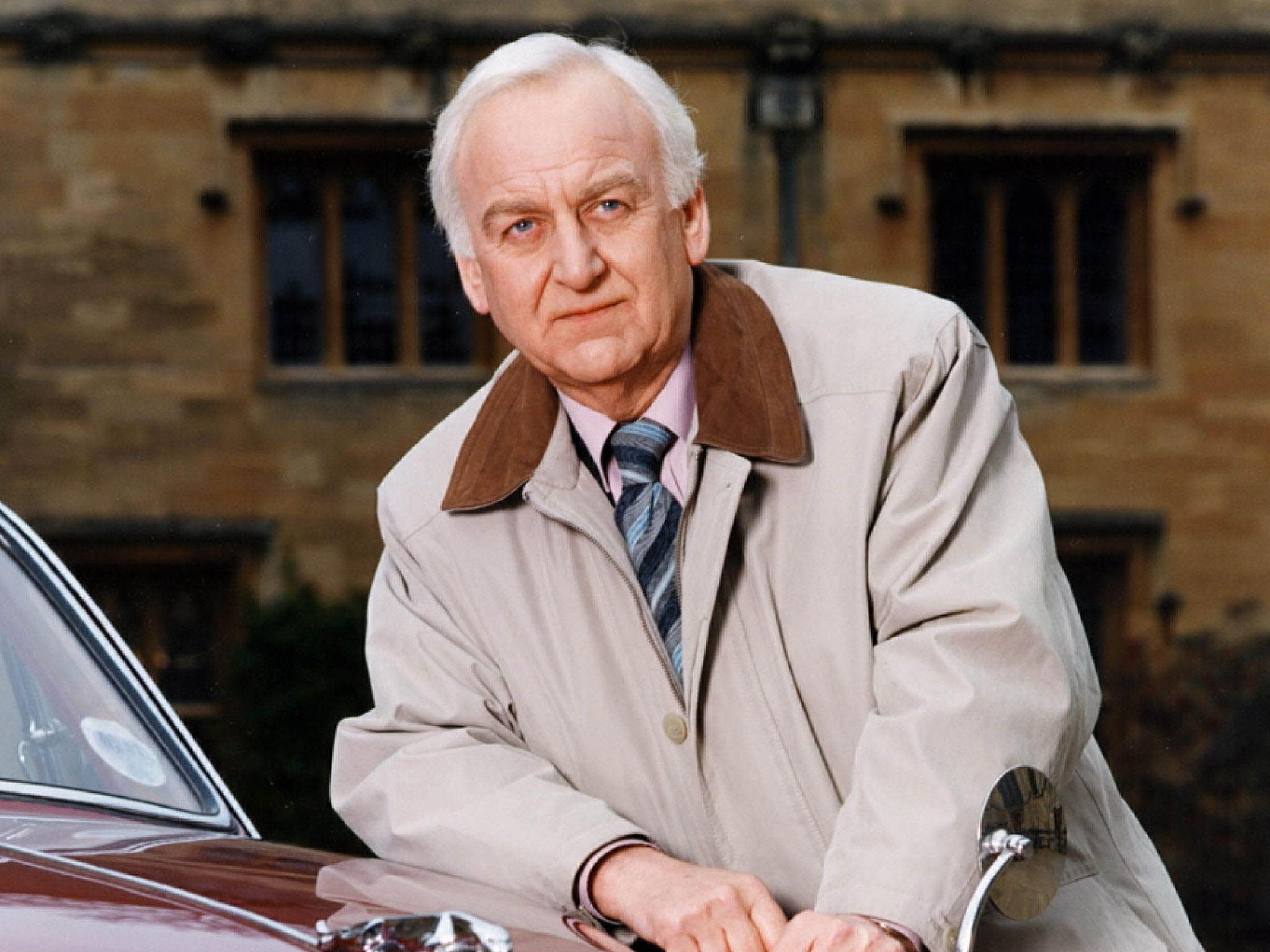Colin Dexter obituary: Inspector Morse creator and one of the great whodunnit men
Dexter, who died today aged 86, began his first Morse novel on a rainy holiday to Wales

“If I am categorised,” Colin Dexter said, “it would have to be as a whodunnit man.” Well, that and as the man who made Oxford the murder capital of Europe. By the time Inspector Morse died in The Remorseful Day, the 30th novel in the best-selling crime series, more than 80 people had met fictional ends in the city – many more on TV, especially once the spin-off dramas Lewis and Endeavour kicked in.
That murder rate isn’t bad going for a man with an impish sense of humour and a fondness for crosswords, beer and single malt whisky – although perhaps his love of Wagner gave a clue.
Norman Colin Dexter was born on 29 September 1930 in Stamford, Lincolnshire, to Alfred Dexter, a grocer, and Dorothy May Towns. It was Alfred’s second marriage. Dexter attended Stamford School and did his national service with the Royal Corps of Signals, where, neatly but misleadingly, he was a Morse operator – that did not prompt the name for his world famous creation.
He studied classics at Christ’s College, Cambridge, graduating in 1953. (His honorary masters followed in 1958). He married Dorothy Cooper in 1956. They had a daughter and son, Sally and Jeremy.
He went into teaching, first as assistant classics master at Wyggeston School, Leicester, then at Loughborough Grammar School. In 1959 he became senior classics teacher at Corby Grammar School, Northamptonshire.
He was, by all accounts, a popular and successful teacher, getting better results for his pupils than they expected. “I think teaching is truly more satisfying than writing,” he once said.
He was national crossword champion half a dozen times and from the Fifties met and became friends with many crossword compilers. They included the compiler of the Observer newspaper’s Ximenes and Azed cryptic crosswords. His name was Jeremy Morse.
Morse, who was later knighted, was a career banker who ended up chairing the International Monetary Fund’s C20 committee.
“He is just about the cleverest man I’ve ever met,” Dexter said. He also knew Dorothy Taylor, who for years wrote The Observer’s Everyman crossword under the name Mrs B Lewis.
In 1966 the onset of deafness ended Dexter’s teaching career. He took a senior job in Oxford at the University’s Delegacy of Local Examinations. He remained there until retirement in 1988.
In his spare time he began writing general studies textbooks for Robert Maxwell’s locally-based Pergamon Press. He wrote a page a day between Radio 4’s The Archers and his nightly visit to the pub. “A page a day quickly built up,” he said.
In August 1973, during a family holiday in Wales, he began writing his first crime novel. “It was a Saturday and it was raining. The children were moaning. I was sitting at the kitchen table with nothing else to do, and I wrote the first few paragraphs of a potential detective novel.”
One of the things the classics had taught him was "initium est dimidium facti – the beginning is half of the deed". He explained: “My own view about beginning to write is that you shouldn’t think you’re going to write the best first sentence or the best first paragraph. I used to think, I’m probably going to write the worst first sentence ever written. Once you’ve done that you’re there, aren’t you?”
Over the next 18 months he carried on with the book he’d started. He wrote it in longhand and had someone type it up, as he did all his future novels.
Last Bus To Woodstock was turned down by Collins but picked up by Macmillan who published it in 1975. It introduced the curmudgeonly, tight-fisted, middle-aged policeman Inspector Morse and the equally grumpy middle-aged Welshman Sergeant Lewis. Morse drove an old Lancia and didn’t reveal his first name.
Dexter gave Morse his own interests: that fondness for Wagner, pleasure in cryptic crosswords and liking for real ales and single malt whisky. Both men were heavy smokers. (Dexter had to give up booze and smoking when diagnosed with diabetes – something that ultimately Morse died from in the novels. It was a heart attack on TV.)
Both creation and creator were pessimists.
"He [Morse] expected that if it was going to turn out either good or bad, the odds were slightly on it being bad rather than good. I’ve always felt a little bit that way as well."
He won the Crime Writers’ Association’s Silver Dagger for Service of All The Dead in 1979 and The Dead of Jericho in 1981. In between, in 1980, he was elected to the august Detection Club. He took the Gold Dagger for The Wench Is Dead (1989) and The Way Through The Woods (1992).
Dexter’s interest in crosswords was reflected in his plotting, with lots of red herrings and misdirection. The name of the killer in all but one of the books was based on the winner of the Observer Azed crossword.
Dexter was mischievous and enjoyed weaving private jokes into his books. Quotations were regularly used as chapter headings. Dexter made up about a third of them. He often cited Diogenes Small, who had compiled a dictionary and written many books. Dexter gave Small’s dates as 1797-1805 but nobody seemed to query the reality of this child genius.
The fortunes of the novels changed massively when they were adapted for TV with John Thaw as Morse and Kevin Whately as Sergeant Lewis. The pairing of the older with the younger man was reflected thereafter in Dexter’s writing – in the novels too, Lewis got younger.
Morse on television wasn’t quite so mean, nor a smoker – and the producers swapped the Lancia for a vintage Jaguar simply because they couldn’t find the right Lancia to film.

Elements of the TV productions were as playful as Dexter’s novels. Composer Barrington Pheloung incorporated the Morse code for the name Morse in the theme tune and sometimes spelled the name of the killer in the incidental music. Dexter made cameo appearances in all but three Morse episodes. He continued his cameos in the TV spin-offs, Lewis and Endeavour.
(After Dexter had killed Morse off he wrote a story about Morse’s young policing days. Endeavour on television was the consequence.)
In 1996’s Death Is Now My Neighbour he revealed Morse’s first name on the last page, intending it to be the last novel. He claimed that he had already decided on the first name when he saw a sticker for Endeavour Garages on the windscreen of Jeremy Morse’s car.
In 1997 he was awarded the CWA Diamond Dagger for his outstanding contribution to the crime genre.
He killed Morse off two years later in The Remorseful Day. (The title came from A E Houseman, one of Dexter’s favourite writers.)
His decision to kill him off caused a furore, especially as the TV series was still running. The 33 episodes between 1987 and 2000 (but still repeated today) reached a global audience of 750 million people in 200 countries.
Dexter ended the series not because he was fed up with Morse but because he felt he was getting clichéd. “Things lacked freshness,” he explained. “I felt that I was getting older, and I don’t think many people get better as writers when they get older. Certainly I was feeling a little tired ... but probably above all I felt I was running out of potential ideas.”
The final TV episode was screened in 2000. Dexter was made an OBE in the same year. Tragically, John Thaw died 15 months later from cancer. He and Dexter had become good friends. They shared a passion for music. On their separate appearances on Desert Island Discs they made three identical selections. (For his luxury Dexter chose a manicure set.)
Although Dexter never knew the beginning of a novel, he always knew the ending, except in one book where he had to change it.
"I always had one idea and that was going to be the terminus ad quem. I knew exactly what was going to happen in the last chapter but certainly not in the middle. There was, like Philip Larkin said, 'a beginning, a muddle, and an end.' But I did know where the end was, so that makes me a whodunit man." And one of the greats.
Colin Dexter, born 29 September, 1930; died Oxford 21 March 2017
Join our commenting forum
Join thought-provoking conversations, follow other Independent readers and see their replies
Comments